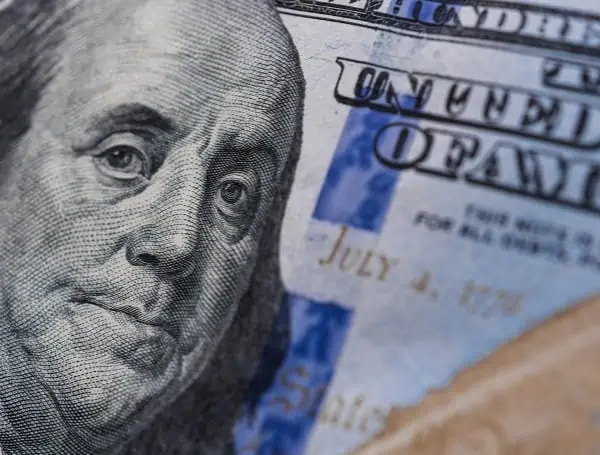Newly released government statistics show that inflation eased more than expected in April, slowing to its lowest level since February 2021.
The consumer price index (CPI), a broad measure of the prices of everyday goods, increased seasonally adjusted 0.2% in April, the Bureau of Labor Statistics (BLS) reported Tuesday. Meanwhile, the year-over-year inflation rate rose 2.3% in the same month, according to the BLS.
The core CPI also increased 0.2% in April, after a 0.1% increase in March, the BLS reported.
READ : Donalds’ Due Process Stance Triggers AOC Fundraising Amid Accusations Of Neglecting Constituents
“The April CPI report suggests that inflationary pressures in the U.S. economy remain moderate and relatively well-contained,” Peter C. Earle, the director of economics and economic freedom at the American Institute for Economic Research (AIER), told the Daily Caller News Foundation. “Headline inflation rose by 0.2% on the month, a slight pickup from March, but still indicative of a disinflationary trend compared to the high-inflation period of 2021 to 2022. The data reflects a balancing act: shelter costs continued their steady ascent, acting as a perennial driver of core inflation, while leisure-related service categories — such as airfare and hotel lodging — experienced outright price declines.”
“The fact that nearly 40% of core components posted monthly declines points to underlying softness in consumer pricing power,” Earle added. “All told, the report portrays an economy still expanding but with mixed signals: resilient in sectors like housing, yet subdued in discretionary services and goods impacted by shifting trade policy.”
The slower inflation in April comes as the U.S. economy added 177,000 nonfarm payroll jobs in the same month, beating economists’ expectations, according to BLS data released on May 2.
Still, some economists have warned that President Donald Trump’s sweeping tariffs could begin to accelerate inflation in the next few months.
READ: Florida Gov. DeSantis Urges Ohio Lawmakers To Support Congressional Term Limits
“It is plausible that May’s CPI report will show more pronounced effects from tariffs, particularly in core goods,” Earle told the DCNF. “As inventories sourced prior to the April tariff hike begin to run low, retailers and importers may have less ability to shield consumers from higher input costs. If passthrough accelerates, categories with heavy China import exposure—such as electronics, furniture, and appliances — could see further price pressures.”
“That said, the magnitude of this impact will depend on supply chain behavior and pricing strategies among importers,” Earle added. “Service-sector inflation, which makes up the bulk of core CPI, may continue to exert a moderating influence, especially if leisure and discretionary demand remains soft. Ultimately, while tariffs could nudge inflation upward in the near term, broader momentum will depend on consumer demand, supply-side flexibility, and Federal Reserve policy posture.”
Several recent polls have shown that some Americans are dissatisfied with Trump’s economic policies during his second term. An NBC News survey released March 16 found that the majority of voters, 54%, said they disapproved of the president’s early job performance on the economy, while only 44% approved.
Please make a small donation to the Tampa Free Press to help sustain independent journalism. Your contribution enables us to continue delivering high-quality, local, and national news coverage.
Connect with us: Follow the Tampa Free Press on Facebook and Twitter for breaking news and updates.
Sign up: Subscribe to our free newsletter for a curated selection of top stories delivered straight to your inbox.

First published by the Daily Caller News Foundation.
